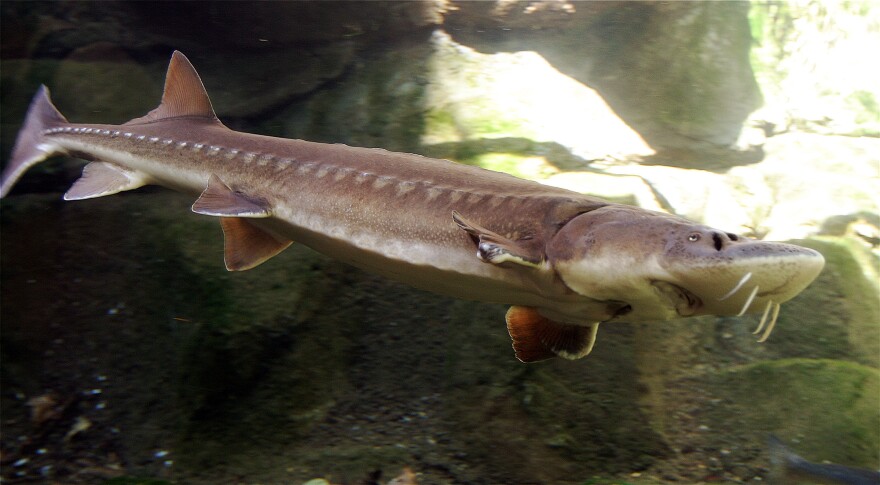Hundreds of lake sturgeon will be traveling upstream Black River at the end of this month to spawn.
The state and local partners are now seeking volunteers to stand guard as the fish make their journey in Cheboygan County to prevent poaching.
Lake sturgeon are listed as a threatened species in Michigan. In the last two decades, statewide protection efforts have helped increase their numbers.
But sturgeon are still vulnerable to poaching, especially during spawning season.
Mary Paulson is the volunteer coordinator for Sturgeon For Tomorrow. She said it takes male sturgeon 15 years and female sturgeon more than 20 before they’re able to spawn.
“[A sturgeon] has to live this long to have babies - that's all there is to it," Paulson said. "So, if you kill off all the big fish you've lost everything that's going to make our next baby sturgeon.”
Paulson said volunteers in the guard program are a “show of presence” to potential poachers.
“If someone had wanted to be in one of the shallow areas of the river and catch a fish, they see us standing there, and they realize, ‘oh there's somebody watching,’" Paulson said. "We've seen quite a few people just turn around and go back the other way.”
The guard program typically runs from the last week of April through June. Volunteer shifts typically go from 6 a.m. to 9 p.m.
Volunteers report suspicious activity to the DNR conservation officers on-site and track sturgeon numbers. DNR officers lead watch efforts through the night.
Volunteers can register by visiting Sturgeon For Tomorrow's website.



